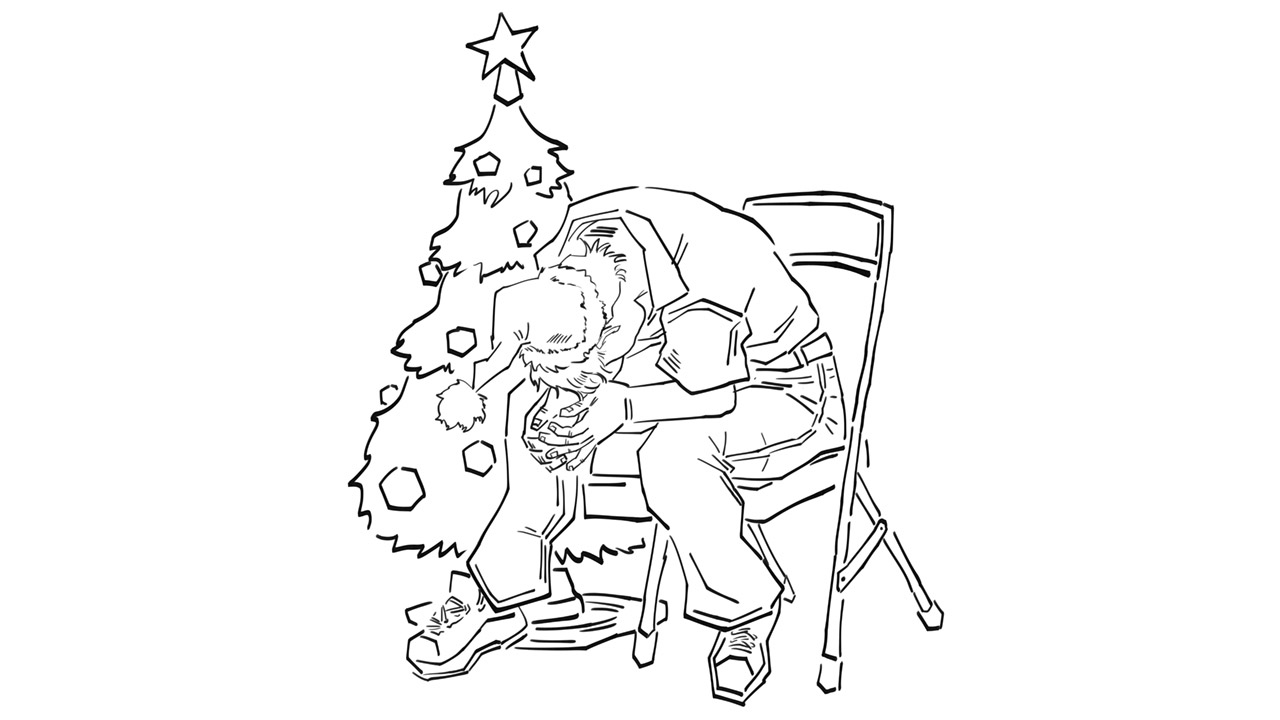Fighting New Year's depression
 CREDIT: DYLAN CHARETTE
CREDIT: DYLAN CHARETTESeeing the falling ball, decorations, and the smell of the Christmas tree is enough for the mood to automatically decrease, taking us into a state that we experienced in the past.
The end of December means patiently awaiting the holidays when we all go back to our childhoods and begin to believe in magic. Decorating the house and the Christmas tree, thinking over a menu, looking for gifts, waiting for a miracle - for many this time marks the happiest of the year. But not for everyone: the end of the festive bustle can make some feel sad, apathetic and even irritated. These are all symptoms of New Year’s depression.
Let’s start by looking at what depression is. Depression is a mood disorder, and mood is how we react to external circumstances. Can a person get upset around the new year? Can you negatively assess the pre-New Year's bustle? The new year in this case is the circumstance that causes a negative reaction.
One of the main causes of New Year’s depression is unfulfilled dreams and goals. On New Year’s Eve, many people typically sum up the results of their year and share new plans for the future. But imagine a person who has unfulfilled dreams or unrealized goals. Perhaps they have been in this situation for several years already, and the new year will remind them of what they could not achieve. Everything is connected with high expectations that did not come true or may not come true.
Another option is possible. In childhood, many develop an ideal picture of how to celebrate the new year. We would like to feel the same emotions again, but it is impossible to relive them. People become sad about the past, plunging into a negative state.
A previous bad New Year’s experience can also contribute to a feeling of sadness. Once the brain has experienced a strong emotional shock, it develops a habit of reacting to the event in a certain way. This happens according to the conditioned reflex principle. Seeing the falling ball, decorations, and the smell of the Christmas tree is enough for the mood to automatically decrease, taking us into a state that we experienced in the past.
Symptoms of this illness are similar to those people experience with depression. These are apathy, lethargy, headaches, lack of mood and emotions as well; feelings of hopelessness, as if you are stumped; unwillingness to take care of oneself, the desire to lead the same type of life. It also contributes to a lack of plans and goals, as well as general negative thinking and poor self-esteem.
Methods for dealing with New Year’s depression
First, there is no need to build expectations, and if you do, let them be flexible. It is important to treat the process playfully and remember that something can always go wrong. The most important point is to learn to control your reactions to events that occur in life. There are no good or bad events, there is only our choice. We ourselves choose what emotions to endow them with. You need to see the world not in light or dark colours, but through the most transparent glasses. Only you are the master of your emotions and reactions.
Editorial opinions or comments expressed in this online edition of Interrobang newspaper reflect the views of the writer and are not those of the Interrobang or the Fanshawe Student Union. The Interrobang is published weekly by the Fanshawe Student Union at 1001 Fanshawe College Blvd., P.O. Box 7005, London, Ontario, N5Y 5R6 and distributed through the Fanshawe College community. Letters to the editor are welcome. All letters are subject to editing and should be emailed. All letters must be accompanied by contact information. Letters can also be submitted online by clicking here.

















